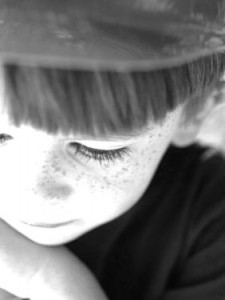 We use the word “survivor” to embody having been able to live through some horrific circumstance: survived the holocaust, survived the Oklahoma City bombing, survived abuse of any kind, survived the floods in the South. The trauma that results in being a survivor is potentially long-lasting and changes the “survivor” forever.
We use the word “survivor” to embody having been able to live through some horrific circumstance: survived the holocaust, survived the Oklahoma City bombing, survived abuse of any kind, survived the floods in the South. The trauma that results in being a survivor is potentially long-lasting and changes the “survivor” forever.
There is no known template for how a survivor moves back into the world they knew before the traumatic personal devastation occurred. What we do know is that there is a loss of sense of self. The survivor cries out, either internally or externally, to retrieve that which is known and to replace the foreign territory with some calming, known remedy. Instinctually, we want a quick fix. We want to feel better and knock out the pain of the memories. The coping methods vary from survivor to survivor, with some reaching out to friends and family, others escaping through drugs and/or alcohol, some by becoming more private or introverted.
Yet, what happens if the survivor is a child, and does not have any skilled coping mechanisms? How do they grow up as a survivor? How have they remained hidden, and in that hiding, framed the very person they embody? How does it affect their ability to trust, their understanding of intimacy, and their ability to fully develop into a person who feels whole?
Their survivorship frames who they become, and affects whether they are able to have healthy relationships, be successful in a job, feel self-confidence, and just be comfortable in their own skin. We have many children who are survivors in our culture. They are now coming of age in a time where there is instability and fear. The culture mirrors what they feel. What they feel is real. It is important to help the survivors learn to change their perspectives, reorganizing the internal strategies of hiding and allowing them to be our teachers. They need a role that enables them to take that which hurt them and turn it into a model for survival. Their lives create the template of how they got in touch with their Lion of Courage.
We have all been children, and we have all survived. Perhaps it is time that we emerged into adulthood as being curious about the other and being teachers to all. Learning from others gives us a sense of knowing that we do not need to have all the answers. This gives birth to the template for healing and survivorship.
Grief Meditations


How true ring your words of childhood trauma. I didn’t even know I was a survivor until my mid-forties. I had buried the memories so deep that it took the words of my abuser to retrieve them. And in time he took to utter them, they all came flooding back. These revelations actually helped to explain so much of my behavior in my teens and early twenties. Thank God for Oprah, too, for she explained so much over the years. It is sad to realize, as an adult, that I am not really the person I was meant to be, but the result of someone else’s actions. Intellectually, I understand how I came to be who I am, but emotionally, I’m still that child.
Who knows what life would have been like without having gone through such an experience. I don’t envy anyone else’s life. As a result of my experience, I’m a shy introvert, but I’m also creative and fiercely independent. I wish I had an innate ability to build rapport and bond with others quickly, and I wish I had family to call on for advice. These are things that can be worked on. I try to learn from every experience. I also turn to my role models who are a diverse group of friends and mentors that are genuine, loyal and positive. We hold one another accountable and inspire one another to be better. I integrate their wisdom and all that I know and have experienced into my personal and work life. Excellence and abundance surrounds me. I’ve dedicated my talents and skills to serve others which fills me with joy. Yet, it is the quieter times when I’m not serving others or engaged in a project that I struggle with the chaos in my mind that looks like a Jackson Pollock painting. Random thoughts are so scrambled that I’m often confused, anxious and tired. At the same time, I realize that the darkest parts of me serve as my greatest inspiration in creativity and personal growth which is helpful in all aspects of my life. In regard to the past, I’ve forgiven everyone but myself. What’s the deal with the unworthiness? I focus so much on personal transformation and excellence that my own high standards and far reaching goals are exhausting. Challenging oneself to grow is a good thing, but so is self acceptance. How do you achieve that ballance? How does one get out of the mind and the thoughts that are so isolating and overwhelming? How does one upgrade in the ability to receive love in order to allow one to overflow more in giving love?